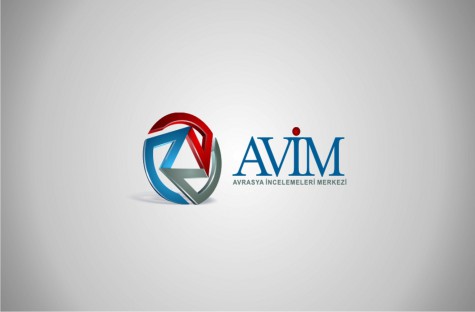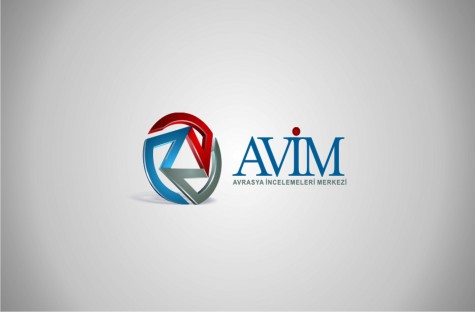The Parliamentary Elections held in Armenia on May 6 has not created a great change in the country’s political situation. The Armenian Republican Party chaired by President Sarkisian has maintained its place as first while the Prosperous Armenia Party has become second. These two parties held together 82 seats in the last legislature, while they will have 105 seats in the next parliament which has a total of 131 seats. In short, it could be understood that these two parties will rule Armenia for the next five years if they come to an agreement between themselves. Even if they fail to come to an agreement, since the Republican Party will have the absolute majority in the Assembly, it will be able to form a government on its own. If they reach an agreement, it is believed that Serge Sarkisian will easily be able to win the Presidential Elections to be held next February. However, some surprising developments could take place. Serge Sarkisian who, before the elections in 2007, generally occupied offices related to security such as the Ministry of Interior or the Ministry of Defense, had first become Prime Minister and then the Chairman of the Republican Party and this had made it easier for him to occupy the presidential seat left by Robert Kocharian. Unlike in Turkey, the Armenian Presidents could also be members of the political parties. Therefore, Serge Sarkisian has maintained his position as Chairman of the Republican Party and has participated in the election campaigns this year. The Republicans have increased their votes in the current elections from 33% too 44% and its numbers of deputies from 64 to 69. This way, although with only three deputies, they have gained the absolute majority. The Prosperous Armenia Party has been established shortly before the 2007 elections by the wealthy businessman Tsarukyan. According to a widespread belief, it has been established upon the advice of President Robert Kocharian, who not being able to be elected as President a third time, wished would not drift away from politics. Although the existing conditions have prevented Robert Kocharian from having an active role in politics during the 2007-2012 period, this party, constituted mainly of wealthy businessmen, has gained praise through Tsarukyan’s sympathetic behaviors and aid provided to the poor communities. In fact, it has achieved a great success in this election by increasing their votes from 15% to 30% and their number of deputies from 18 to 36. According to some speculations, this party will try to leave Sarkisian in a difficult position by not joining the Government Coalition and this will therefore make it easier for Kocharian to be elected as President again in the 2013 elections. However, since the Republicans gaining the absolute majority will make it possible for them to increase their number of seats in the Assembly by forming coalitions with smaller parties, these could amount to nothing in the end. The Rule of Law Party as the third party of the Coalition has shown regression in the recent years. While the number of its deputies was 19 in the elections of 2003, this number has decreased to 9 in 2007 and to 6 this year. Its Chairman Arthur Bagdasarian is known as an advocate of the European Union and especially of France. However, this is not an important quality in Armenia. Concerning the Opposition, the bloc formed by the Armenian National Congress, headed by Armenia’s first President Levon Ter Petrosian, with some smaller parties has barely exceeded the threshold of 7% set for political blocs and has gained 7 deputies. It could be understood that Levon Ter Petrosian’s tactic, which he performs with a great determination of persistently organizing demonstrations and criticizing the government at every given chance, has not been very beneficial. This situation could also affect Ter Petrosian’s political career. The Armenian Revolutionary Federation known as Dashnak or Dashnaks has been established in 1890 and is still Armenia’s oldest party represented in the Parliament. It has maintained its secret and terrorist activities until recently. The First Armenian Republic existing in 1918-1920 was essentially ruled by Dashnaks and has eventually joined the Soviet Union without achieving any success in almost any fields. From then on, the Dashnaks have organized themselves within the Diaspora and have become the main political power there. Their domination of the Diaspora still continues. Meanwhile, the terrorist activities of the Dashnaks particularly draw attention. At the basis of most of all the Armenian revolts during the Ottoman Empire lies the provocation of the Dashnaks. The Dashnaks are also mostly responsible for the atrocities committed against the Muslims in Eastern Anatolia during and right after the First World War. During a conference held after the war, the Dashnaks have reached a decision on killing the prominent figures of the Unity and Development Party and have caused Talat, Sait, Halim and Cemal Pasha, together with some other people, to be murdered. More recently in 1973-1986, the Dashnaks together with ASALA, another terrorist organization, have caused the murders of 31 Turkish diplomats serving abroad and some members of their families. After Armenia gaining independence, they have become active again in the country only to be banned during Ter Petrosian’s presidency due to their harmful activities. As they helped Kocharian to be elected as President, they have joined the Government coalition during Kocharian’s presidency and have continued to do so during Sarkisian’s presidency. However, by objecting to the signing of the Turkey-Armenia Protocols, they have withdrawn from the Government. While serving in the Governing, the Dashnaks have gained 11% of the votes in the 2003 elections and have gained 11 deputies. In 2008, they have gained 16 deputies with 13% of the votes. In the current elections, they have experienced a great regression by only gaining 5.7% of the votes and 6 deputies. From what could be understood, being in the opposition has not been beneficial for the Dashnaks. The last party that should be addressed is the Heritage Party. It has been established by a US Armenian named Raffi Hovannisian before the 2008 elections. Hovannisian is Armenia’s first Foreign Minister. He is known for his extremist nationalist stance and statements. Opposite to Ter Petrosian, the first President who paid attention to not create problems with Turkey, when Hovannisian has continued displaying an approach that could be said to be aggressive against Turkey, Petrosian has discharged him from office. From then on, Hovannisian has not been able to return to politics and in fact, has not even been able to gain Armenian citizenship. Years later, most probably upon the insistences of the Americans, he has gained Armenian citizenship and has right after formed the Heritage Party having an extreme nationalist tendency. By gaining 6% of the votes and 7 deputies in 2008, this party has relatively achieved success. This year, Hovannisian, who has tried to gain the attention of public opinion by staging hunger strikes before the elections for reasons unknown, has not been successful and the Heritage Party has entered the Parliament by gaining 5.7% of the votes and 5 deputies. The final point we would like to address in relation to the Armenian parliamentary elections is the irregularities and frauds. Since its independence, electoral frauds and irregularities have taken place in all elections held in Armenia which have also been recorded in the reports of international observers. However, none of the elections have been cancelled. Based on Armenian press, this year casting votes in return for money has been experienced the most. The amount paid is generally 10.000 Drams (approximately 25 dollars). A newspaper has put forth that 2.5 million dollars might have been distributed in total. Secondly, there is the incidence of ballot boxes being filled with voting papers beforehand. However, there are some articles that argue that this fraud has been seen less this year compared to the previous years. Another and rather common irregularity is the parties carrying the voters by bus to the voting places and providing them with foods and beverages. All those parties not gaining success in the elections have objected to the irregularities and frauds and the Armenian National Congress has even expressed that they will appeal to the Constitutional Court against the elections. The first reactions received from OSCE/ODIHR, the most important organization responsible for observing the elections, points towards irregularities, but it states at the same time that the elections have been held in tranquility and within a competitive atmosphere. Catherine Ashton, Hight Representative of the EU for Foreign Affairs, along with Commissioner Stefan Fülle responsible for enlargement has also expressed this viewpoint. On the other hand, Spokesman of US Foreign Ministry has stated that compared to previous elections there is some improvement in the situation. When recalling that ten persons had been killed during the demonstrations held after the last election due to the intervention of the police, it is possible to say that this year there really has been an improvement in the elections.
© 2009-2025 Center for Eurasian Studies (AVİM) All Rights Reserved
DRAFT RESOLUTION ON “GENOCIDE” IN THE US SENATE (II)
TURKEY AND THE RUSSIAN BASE IN GYUMRI
 IRAN-CHINA DIPLOMATIC MEETING IN BEIJING
IRAN-CHINA DIPLOMATIC MEETING IN BEIJING
 A TALE OF TWO STATEMENTS
A TALE OF TWO STATEMENTS




























